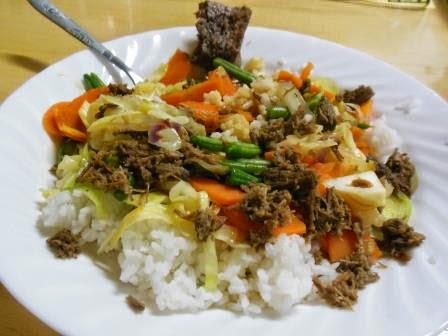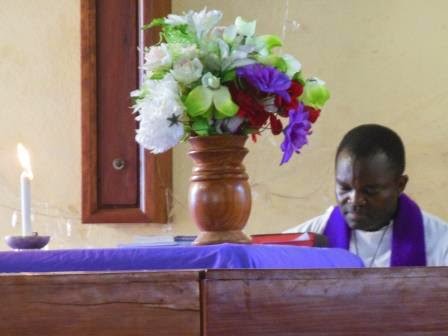Jump in the car! Let's hit the road. Oh, wait.
Did you pack the suitcase? Get the flashlight/lamp? Pack the water? Grab
the umbrella (the rainy season’s started)?
Check fuel and oil in the car? Get the passe-avant?
Some of those questions are ones you would
ask before going on a trip; some not.
You need the water and lamp because you never know if utilities will be
working when you get where you are going, even if it is a city like Yaoundé or N’gaoundéré. Yaoundé is the capital, but its
infrastructure is overtaxed by the huge numbers of people who have migrated
there. N’gaoundéré has regular
electricity, but the level of power is sometimes low and sometimes lights won’t
go on.
Then there’s the car. I am down to 2 ELCA cars in front of my house
in GB (and one from the German CAR mission) – the others are back in service in
CAR. I came to N’gaoundéré yesterday and
had planned to bring the Land Cruiser; it had the passe-avant to come this
direction. Think about wanting to take a
road trip to Canada or Mexico or to rent a car and drive around Europe. What would happen at the border? There are formalities, right? Passport check, maybe a check inside the car,
then on your way.
Here, to take a car registered in CAR into
Cameroon, you need a document called a passe-avant (go ahead, literally) that
give you permission to drive the vehicle into the country for a limited
time. It will allow you to go just one
place (and back). So, when I went to
Yaoundé, I had to get a passe-avant but I couldn’t use the same one when I came
to N’gaoundéré. Fortunately, since
Garoua Boulai is a border town and we know the customs officials, I don’t need
any special document when I am driving around town. But leaving GB is different…
In my logic, since there were two vehicles,
I’d get a passe-avant for each one to go each direction. But, no.
A person can have one passe-avant at a time to go one direction. It makes sense in that one person can only
drive one car at a time… Different logic than mine that would have allowed
greater freedom of movement. Still, if
the object is to control where foreign vehicles are, their system makes sense… So, I had a passe-avant for the Land Cruiser
for N’gaoundéré. I got special
permission to have a document for two weeks to go to Yaoundé. So, all set.
At the end of the week, I thought I had what I needed for this trip.
But, wait!
Let’s complicate things some more.
The Land Cruiser was having some trouble starting and needed some
work. Then, it needed a part they don’t
have in GB. No problem. Someone was coming from N’gaoundéré and could
bring it. He did, but it didn’t
fit! It goes back with the one that
doesn’t work so they can get the right one/size.
Sigh.
So, I took the expired Yaoundé passe-avant and the still-good N’gaoundéré
one for the Land Cruiser that won’t run back to customs at the border. (No, you can’t just use one written for one
car with another…) I now have a
month-long document for the pick-up. It
is a double cab one that is actually newer and more comfortable than the Land
Cruiser so I guess I did well…
Note:
for a while I was driving a Cameroonian vehicle from the church here,
but other visitors came and it was needed.
How could I argue when I have two others I can use. I just have to plan ahead if I want to leave
GB!
So why am I in N’gaoundéré? I met Willie Langdji here so that we can do
the Planning, Monitoring, and Evaluating workshop for program leaders of the
Evangelical Lutheran Church in Cameroon.
Two days starting today! This is
the same workshop we did for Central African leaders in February.
Hope you have a great Palm Sunday. I did go to church before I left GB and we
did wave palms! The pastor even talked
about keeping them at home until next year so they can be used to make the Ash
Wednesday ashes in 2016!
(Sorry, no pictures! Limited internet
connection and I didn’t take any, anyway.)















